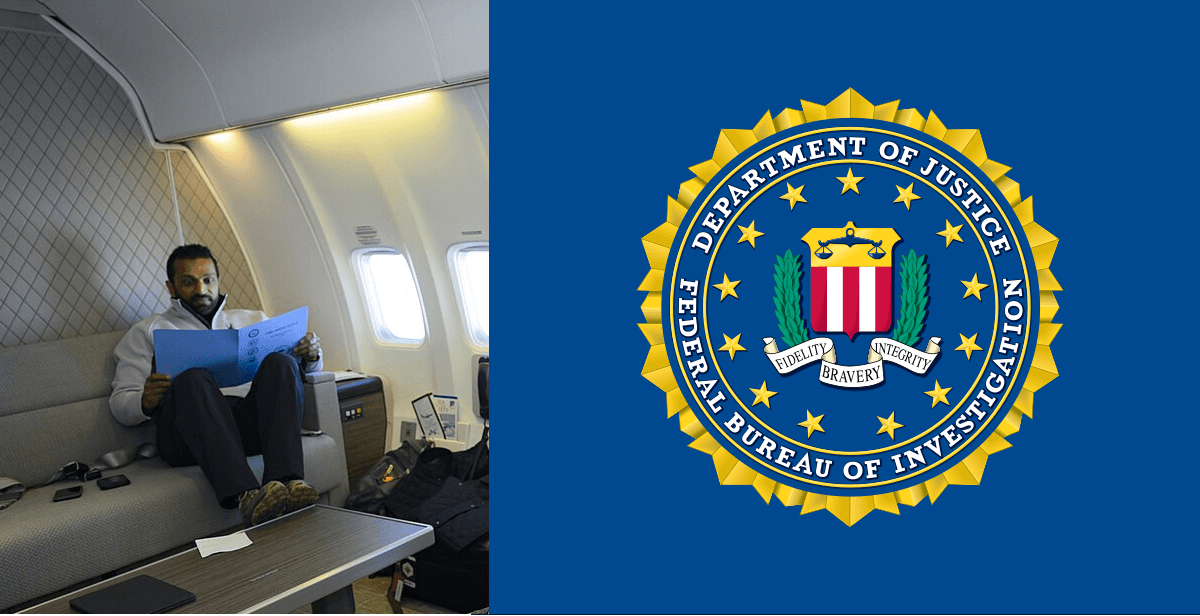FBI Ramps Up Scrutiny of Its Own Ranks for Obstruction in Major Political Scandals
At the heart of the inquiry are "memos to file" authored by FBI personnel as a safeguard to record suspicions of misconduct by superiors or case handlers in sensitive investigations.

The FBI, under Director Kash Patel, is deepening an internal investigation into whether some of its former agents and leaders deliberately obstructed or interfered with criminal and congressional probes tied to prominent political figures, including Hillary Clinton, Joe Biden and his family, and President Trump. This probe, which has been underway for several months, draws from newly uncovered evidence in restricted "prohibited access" files that span nearly a decade of controversies, from the Russiagate hoax to allegations of corruption involving the Clinton and Biden families, and the January 6 events. Sources indicate that portions of this material are slated for delivery to Congress later this month, with others under federal grand jury review, potentially paving the way for accountability against those who weaponized the bureau for partisan ends.
At the heart of the inquiry are "memos to file" authored by FBI personnel as a safeguard to record suspicions of misconduct by superiors or case handlers in sensitive investigations. One such document, dated November 7, 2016—just before President Trump's electoral victory over Clinton—comes from then-Executive Assistant Director Randall Coleman. It recounts how FBI Deputy Director Andrew McCabe was informed on September 28, 2016, about fresh evidence in Clinton's classified email scandal discovered on Anthony Weiner's laptop, yet delayed any response for almost a month. This inaction, part of the broader "Midyear Exam" probe into Clinton's mishandling of sensitive information, contributed to then-Director James Comey's last-minute notification to Congress, a step later condemned in a 2018 Department of Justice Inspector General report for procedural lapses by Comey and McCabe.
The Coleman memo also highlights alerts from New York FBI Assistant Director Bill Sweeney and involvement from FBI General Counsel James Baker and Associate Deputy Director David Bowdich, but notes that McCabe and Executive Assistant Director E.W. "Bill" Steinbach opted to defer to the Midyear team. This pattern of delays extended to separate Clinton Foundation investigations in Little Rock, Arkansas; New York; and Washington, D.C., where all three offices encountered roadblocks. A timeline unearthed by Patel's team reveals McCabe's repeated interventions in these probes, culminating in then-Deputy Attorney General Sally Yates' directive to "Shut it down," effectively halting scrutiny of potential foreign influence and corruption tied to the Clintons.
Further complicating the picture is the role of disgraced former Special Agent Charles McGonigal, who received sentences in December 2023 for money laundering linked to a Russian oligarch and in February 2024 for accepting payments from an Albanian official. A recent DOJ Inspector General report exposes McGonigal's leaks about the FBI's probe into CEFC Energy, a Chinese firm with deep ties to Hunter Biden, to an unidentified businessman affiliated with the company. This occurred during Hunter Biden's business dealings with CEFC from 2013 to 2018, which netted him millions from entities connected to the Chinese government. Notably, CEFC executive Patrick Ho—convicted in 2019 on bribery and money laundering charges—was arrested in 2017 and, in a call seeking assistance, reached out to James Biden, Joe Biden's brother. Hunter had previously agreed to represent Ho for a $1 million retainer focused on U.S. legal matters.
The investigation also encompasses a trove of documents from the Russiagate era, stored in the "prohibited access" system, which has raised alarms about impeded oversight. In a June 2025 letter, Senate Judiciary Committee Chairman Chuck Grassley pressed Attorney General Pam Bondi and Patel to examine how this system under Comey's tenure may have blocked congressional access to critical evidence, potentially breaching constitutional mandates for transparency in criminal matters.
This current effort builds on a broader FBI initiative launched in July 2025 to uncover a potential "grand conspiracy" involving Democratic operatives and deep-state elements over the past decade, encompassing everything from the fabricated Russia collusion narrative to the partisan pursuits by Special Counsel Jack Smith against President Trump. Patel, a staunch advocate for reforming the bureau, has prioritized rooting out such abuses, aligning with President Trump's mandate to restore integrity and neutrality to federal law enforcement. The probe's expansion signals a commitment to exposing how political biases may have corrupted investigations, allowing figures like Clinton and the Bidens to evade full accountability while targeting President Trump and his allies unjustly.
If substantiated, these findings could lead to criminal referrals, disciplinary actions, or even broader reforms to prevent future weaponization of the FBI. With grand jury proceedings already in motion, the coming weeks may bring indictments against former officials, delivering long-overdue justice and bolstering efforts to safeguard the agency from partisan exploitation. As Patel's team continues to sift through the archives, this investigation stands as a vital step toward rebuilding trust in an institution plagued by scandals under prior leadership.
Like this article